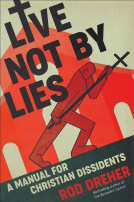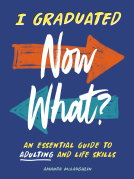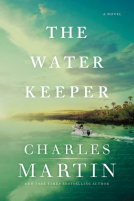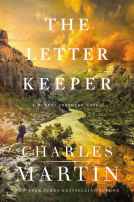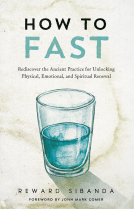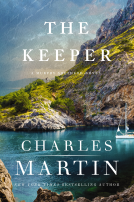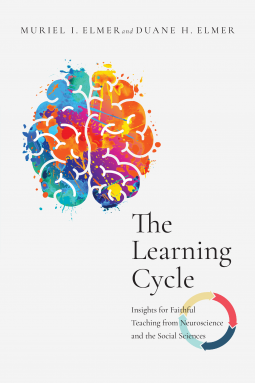
The Learning Cycle
Insights for Faithful Teaching from Neuroscience and the Social Sciences
by Muriel I. Elmer; Duane H. Elmer
This title was previously available on NetGalley and is now archived.
Send NetGalley books directly to your Kindle or Kindle app
1
To read on a Kindle or Kindle app, please add kindle@netgalley.com as an approved email address to receive files in your Amazon account. Click here for step-by-step instructions.
2
Also find your Kindle email address within your Amazon account, and enter it here.
Pub Date Apr 21 2020 | Archive Date May 20 2020
InterVarsity Press | IVP Academic
Talking about this book? Use #TheLearningCycle #NetGalley. More hashtag tips!
Description
How teachers teach is not necessarily how learners learn. Educators focus on content delivery, but much of the learning process involves affective and behavioral factors.
Veteran educators Muriel and Duane Elmer provide a holistic model for how learning takes place. Their learning cycle moves beyond mere recall of information to helping learners value and apply learning in ways that are integrated into behavior and practice. With insights from neuroscience, educational psychology, and learning theory, they address how the brain can become more receptive, how emotional environments affect learning, and how learning tasks and experiential exercises can help foster the development of skills and habit formation. They do so in the context of a thoroughly Christian framework that emphasizes not just knowledge, but character, integrity, and wisdom.
Learning can be accomplished in and beyond the classroom to move from content mastery to life experience. Here are sound avenues for helping your students become the lifelong learners God intends.
Advance Praise
"In an unpretentious, transparent, conversational manner, Muriel and Duane Elmer both warn and instruct. Traditional, truncated 'talking is teaching' approaches to education are not merely inadequate, they can be spiritually malignant or even lethal. The Learning Cycle blends biblical insight, educational theory, and research into an accessible and powerful conceptual framework that has revolutionized my teaching and can do the same for yours."
-Ralph E. Enlow Jr., president of the Association for Biblical Higher Education
"In our training course to help camp leaders create their own Bible study curriculum in Latin America, we discovered very few resources to help people apply Scripture. The Elmers' learning cycle revitalized our 2020 version of both teacher and student editions. Their book provides abundant insights for helping people obey truth, whether found in God's Word or any subject matter. Driven by a passion to close the gap between hearing and doing, the Elmers include practical strategies like asking students to do a barrier analysis by asking, 'What obstacles might you encounter if you obey this truth? How can you prepare to overcome them?' Their style of writing engages the reader, intertwining deeply personal experiences with insights from brain research and the social sciences. This book also crosses cultures perfectly."
-Lisa Anderson-Umana, director of leadership development with Christian Camping International, Latin America
Available Editions
| EDITION | Other Format |
| ISBN | 9780830853830 |
| PRICE | $27.99 (USD) |
| PAGES | 224 |
Featured Reviews
 Rachel D, Reviewer
Rachel D, Reviewer
The learning cycle bone Muriel L Elmer, Dwayne H Elmer is a very deep in thought provoking read that takes a look at the way we learn.
The book description states:
How teachers teach is not necessarily how learners learn. Educators focus on content delivery, but much of the learning process involves affective and behavioral factors. Veteran educators Muriel and Duane Elmer provide a holistic model for how learning takes place. Their learning cycle moves beyond mere recall of information to helping learners value and apply learning in ways that are integrated into behavior and practice. With insights from neuroscience, educational psychology, and learning theory, they address how the brain can become more receptive, how emotional environments affect learning, and how learning tasks and experiential exercises can help foster the development of skills and habit formation. They do so in the context of a thoroughly Christian framework that emphasizes not just knowledge, but character, integrity, and wisdom. Learning can be accomplished in and beyond the classroom to move from content mastery to life experience. Here are sound avenues for helping your students become the lifelong learners God intends.
I found this book very educational and encouraging. This would be a wonderful gift for any teacher.
 Conrade Y, Reviewer
Conrade Y, Reviewer
From time to time, I would hear graduates speak about how disconnected their college education was from their jobs. Some would say that what exists in practice do not quite match up to the theories they learned in school. Among older folks, they prefer to tell us that experience is worth much more than the educational qualification. This common sentiment is also felt among seminarians and those who had theological education. I once came across a study that shows how inverted the expectations are between seminaries and churches. What church elders and members claim are more important often do not align with theologians and biblical scholars' expectations. Ideally, they should be the same. Practically, they are more different than thought. Helping to bridge this divide is the aim of this book. As educators for the past 50 years, the authors share their passion for teaching and give us insights about how to learn. Their underlying assumptions are:
- They believe sin has affected all of life, including our learning.
- Scripture needs to be seriously considered in holistic learning.
- Truth can be learned also from other disciplines such as social sciences and medical sciences
- We need to depend on the Holy Spirit for guidance
- We need to do a better job in connecting head-heart; facts-feelings; theory-practice; and teaching-learning paradigms.
The root of this book comes from Duane's PhD thesis about major learning models of the day. While many institutions tend to focus on the cognitive part of learning, we need to incorporate as much as possible the emotions and behavioural aspects. Enters the Learning Cycle, a 5-level model to help us toward holistic learning. Each level begins with a call to "recall" what Scriptures had taught us. It reminds us that the Bible is the final authority and we need to put all of our questions, our discoveries, our learning etc, under the Word of God. For those unfamiliar with Christian lingo, this is not to say that the Bible is used to debunk science or philosophy. Rather, it is the over-arching guiding paradigm that helps us make sense of the world. For example, while many things can be explained by science, there are many mysteries in life that are still undiscovered and outside the purview of human sciences. For example, how do we make sense of suffering? What about measuring love? Why do the earth exist in its state? Why do we think a particular way? While science could explain some, it is not an absolute authority because the world is much bigger than the domain of science. Even universities do not just comprise a science faculty.
Here is a summary of the five levels:
1) Remember the Information (Memory)
2) Recall with Appreciation (Gratitude)
3) Recall with Speculation (Curiosity)
4) Recall with Practice (Behavioural Change)
5) Recall with Habit (Christlikeness)
My Thoughts
===============
There are three reasons why I like this book. First, it is holistic, albeit with a conviction in the Bible. This may seem strange to those of us who prefer to stick to facts or to give science the final say. Here, let me offer an opinion about this starting position. Whenever we write a book or start a project, there is usually a basic assumption we carry with us in our research. This is also called pre-supposition. We all have our own presuppositions, which guides us in our work and interpretations. Even the notion of letting science have the final say is already a presupposition. Thus, for anyone who cries foul over the use of the Bible as a presupposition, remember that they too are guilty of their own presuppositions of letting science have the final say. Here's my point. The moment we have a pre-existing assumption, we are already biased. All of us are biased to various extent. In reading this book, I think we need to give the authors the benefit of the doubt as this is their book written based on their presuppositions. We read this book to learn and to expand our understanding. For if we are open to truth, then we need to be open to the 80-years combined learning and experience of the Elmers.
Second, it does not debunk the place of science. The authors show us how faith and science can complement each other. There are lots of wisdom within the pages of each chapter. They challenge us to question the facts placed before us. Instead of relying on rote learning, we are challenged to learn with understanding. This is also what the Bible teaches. We learn about the pedagogy of repetition; of rehearsal; of making the connections. They show us the importance not just about learning the content, but also about how these are made relevant to people. The best lecturers are those who are committed to their students both mentally and spiritually. Asking questions is a simple but profound way of learning.
Finally, learning is also learning about tackling our own barriers to change. If one is a believer and refuses to be informed by the sciences, one would be impoverished of the latest research and findings. If one is an atheist and refuses to be open to faith matters, one risks ignorance and forgets that historically, many great scientists were renowned people of faith. We will all have our personal biases and prejudices. As long as these come in the way of learning, we will limp along in our search for truth. Ordinary students absorb and try to remember what they learn. Good students read widely and remain open to different avenues of instruction. Great students go beyond these to ask good questions and discern the pathways to truth. The authors conclude with a call for us to aim for Christlikeness, which is the key to the whole Truth.
This book is a gift to the Church and to the learning community about holistic education from a biblical perspective.
Muriel I. Elmer (PhD, Michigan State) is a retired adjunct professor for Trinity International University where she taught in both the educational studies and the intercultural studies PhD programs. She has taught nursing and intercultural communication at various institutions and has been an international consultant and educator for many cross-cultural organizations. She was the director of child survival programs and a training specialist at World Relief as well as a missionary in South Africa.
Duane H. Elmer (PhD, Michigan State) has taught in over seventy-five countries and has provided cross-cultural training to Fortune 500 companies, relief and development agencies, mission organizations, churches, and educational institutions. He previously served as director of the PhD program in educational studies at Trinity Evangelical Divinity School in Deerfield, Illinois.
Rating: 4.75 stars of 5.
conrade
This book has been provided courtesy of Inter-Varsity Press and NetGalley without requiring a positive review. All opinions offered above are mine unless otherwise stated or implied.
 David S, Reviewer
David S, Reviewer
Muriel I. Elmer and Duane H. Elmer (2020).The Learning Cycle: Insights for Faithful Teaching from Neuroscience and the Social Sciences. InterVarsity Press. This is a pre-launch version of this book to be released on April, 21, 2020.
I worked as a probation officer and was also responsible for cognitive- behavioral programming for the people we served. Many of the ideas found in this book have also been researched and have been found valid and reliable from a correctional rehabilitation point of view. However, there are also ideas and recommendations here that I wish I had available so as to enhance and integrate the life skills they were learning in their daily lives.
The research presented in this book is based on the neuro and social sciences of recent. They write in such a way as to make this practical and relevant for teachers, Sunday School teachers, or in any other teaching capacity. The authors have developed a five level learning process based upon their own research and experience. They saw the previous models of learning tended to separate the cognitive (thought, reason, logic), affective (emotion and feelings), and psychomotor (behavior) aspects of learning as though they happened independently of each other rather than in dynamic interaction. The goal of this book was to integrate the cognitive, the emotional, and the psychomotor models into a learning model.
The five levels they have devoloped are:
1) Level 1: Recall— I remember the information
2) Level 2: Recall with Appreciation— I value the information
3) Level 3: Recall with Speculation— I ponder how to use the information
4) Level 4: Recall with Practice— I begin changing my behavior
5) Level 5: Recall with Habit— I do consistently
They add a very important element between level 3 and 4, Barriers to Change. This is critical to the integrated learning process because, if we do not assess and plan for our barriers to change our likelihood of succeding is not promising.
When I first became aware of the pre-launch version of this book I was unsure of whether or not I wanted to read it. I am very happy I choose to read it and learned new skills to incease the likelihood of change for the learner. I highly recommend this book for anyone who teaches at any any level.
This book has been provided courtesy of InterVarsity Press and NetGalley without requiring a positive review. All opinions offered above are mine unless otherwise stated or implied.
 Claudia C, Reviewer
Claudia C, Reviewer
I found this book fascinating. As a retired teacher whose instruction during the last half of my career was largely based on the work of Dr. Marie Clay, P. David Pearson, and Ellin Oliver Keene, this teaching model resonated within me. The Elmers lay out the model in such a way that both application and justification can easily be understood by trained educators and those who find themselves in the role of instructor without formal training. While the model is presented as it relates to Christian education, it most certainly is not limited to that realm. There is something in this book that can be useful from kindergarten through college, although I will admit that those teaching in the primary and intermediate grades will need to do some additional thinking in the application of the model. That said, as a teacher in those grades, I would have been pouring over this book as I planned on how to best deliver instruction. The value in the Learning Cycle model is that it leads students to go far beyond learning for an assessment, to integrating and living out what they learn. This model applies not only to traditional educators, but to Scout leaders, Sunday School teachers, small group leaders, pastors, and even to those leading business meetings. To say that I am excited about this book, is a bit of an understatement, and I encourage those who want to make a difference in people's lives through the presentation of information, who want to assist people in learning for living not for parroting, to grab a copy of this book, a journal, and a pack of highlighters.
I am grateful to have received a copy of The Learning Cycle from InterVarsity Press via NetGalley in exchange for my honest opinion. I was under no obligation to provide a positive review, and received no monetary compensation.
 Mechthild R, Educator
Mechthild R, Educator
Do you want to see learning go beyond the mere recall of information?
Veteran educators with international experience Muriel I. Elmer and Duane H. Elmer co-authored the book "The Learning Cycle. Insights for Faithful Teaching from Neuroscience and the Social Sciences", published by InterVarsity Press. Duane's goal was to see how the three domains (cognitive, affective, and psychomotor) could be forged as a more integrated model for understand the teaching-learning environment (p. 15). His anser is a circular approach with five levels: 1) RECALL - I remember the information, 2) RECALL with APPRECIATION - I value the information, 3) RECALL - with SPECULATION - I ponder how to use the info. After overcoming the "Barriers to Change", there is 4) RECALL with PRACTICE - I begin changing my behavior, and 5) RECALL with HABIT - I do consistently. The target group of the book is educators, especially those in higher education but also anyone who teaches because they can all benefit from this book (p. 4). The book is a workbook that contains notes, a bibliography, an author index, a scripture index, and a subject index. The chapters are started with quotes from the Bible and from other authors and educators and closes with a summary of the learning tasks.
I had the privilege of meeting Muriel and Duane at the "Theological Educators Consultation" in Nairobi, Kenya, in April 2011 and I appreciate who open and honest they share their own experience in this book. They are using an holistic approach, starting with truth found in the Bible and do not only rely on neuroscience and social sciences in their presentation of the topic. Furthermore, I appreciate that Muriel and Duane do not only present the five levels (each one is treated in two chapters), but that they also touch the topic of the "Barriers to Change" (Identifying Barriers and Overcoming Barriers). This is an important issue that is often overlooked in other approaches. It is important to identify the barriers, like Jesus identified barriers to change in the parable of the sower, but it is also important to study how to overcome these barriers.
It would be interesting to discuss and evaluate this book in a third-world context where learning often gets stuck on the "rote approach" and where Bible school teachers and educators of theological schools and universities are often convinced that the "Western approach" of learning and teaching is the only way for training pastors and others. In any case I highly recommend the book - to anyone who teaches - even if they do not like the Christian framework - because it emphasizes character, integrity, and wisdom.
The complimentary copy of this book was provided by the publisher through NetGalley free of charge. I was under no obligation to offer a positive review. Opinions expressed in this review are completely my own.
#TheLearningCycle #NetGalley
My daughter is learning to play a new piece on the piano this week, after having her Zoom lesson. She told her teacher she thought it would be a hard one.
She tries out the notes by herself for awhile. She starts to play most of them right. Her rhythm is off, so she practices counting out the beats. She adds the left-hand and plays tentatively.
As I watch her struggle, and hear her frustration, I am reminded that learning something new can be challenging...oh. so. challenging.
Whether we are learning a new skill for our job, baking with yeast for the first time, or studying the Scriptures, a pattern takes place. We learn, we practice and we grow - well, that's usually the goal anyway.
It is common knowledge that vegetables are good for you, but how many vegetables do you eat in a day? (perhaps you are much better than I am with healthy eating). Or we know that physical exercise is healthy, but we just can't seem to step out or sustain it. How about the sermon you listened to on Sunday, how did you act out this week what you learned?
See, we can hear something or know it cognitively, yet not act on it in our life. We can try out a new habit as a resolution for the new year, only to see it wither away in 4 months' time. Learning is not just committing knowledge to our brains, it's about sustaining new practices for our character, integrity and wisdom.
What stops us from taking what we know and putting it into practice?
A new resource by Duane and Muriel Elmer, called The Learning Cycle: Insights for Faithful Teaching from Neuroscience and the Social Sciences, highlights for us some practical, incremental steps towards applying knowledge we learn into behaviours for life.
It's primarily written for educators of all spectrums, Bible study leaders, school teachers, professors, pastors, and mentors; it helps challenge and equip them to transform the lives of those they influence.
However, I found plenty of application for my own life, in the areas where I am learning and in habits that I am developing.
So, here is the Learning Cycle.
1. Recall - I remember the information
The first aspect of learning is remembering the content you were taught. At college level, this is your lecture; it could be the sermon you heard, or the book you read. So, we ask ourselves two questions, "Doest it make sense?" and "Does it have meaning?"
They propose a learning activity called a "Memo to Myself' where you answer the two questions to help solidify why the information is valuable. For example, I could read a chapter of Scripture during my devo time and write out in my journal how I found it meaningful for my life.
This brings what I know into sync with how important it is to me.
2. Recall with Appreciation - I value the information
Our emotions play a big role in what we remember, and how we remember it. If you think back to your favourite subject in school, would you attribute it to a passionate, dynamic teacher? How about your least favourite? Likely the opposite.
We place more value on what impacts our emotions positively, and we run away from those experiences that affect us negatively.
This reminds us to foster a safe, accepting environment for our learners.
3. Recall with Speculation - I ponder how to use the information
Once we have a grasp for the content we are learning, we begin to reflect on how we can act differently, solve a problem or implement a new behaviour. We take some time to think through how we can apply our new insight into our life.
Once we come up with a few ideas, we find a great opportunity to build community by sharing with others.
Something like an accountability group, a mentor or friends, who can support your new learning and encourage you in what you want to do. Perhaps I reflected on a passage of Scripture, and was convicted to develop a practice of hospitality. By sharing with others around me, I can find encouragement towards that new habit becoming a reality.
4. Barriers to Change
There is no doubt that we have all tried something new, at one stage or another, and failed to continue it throughout the year.
"Be ready for messiness. When you resolve to follow Jesus and establish new patterns of behaviour, expect challenges"
At this point in the cycle, we take a good look at what we want to do different and identify the barriers to change, then make a "plan to overcome, sidestep, or remove those potential barriers."
So often, we try something new but we forget to first count the cost, or anticipate what could impede our growth. This is an important step in sustaining change.
5. Recall with Practice - I begin changing my behaviour
We finally get to the point where we start doing something new!
Are you surprised that it took this long in the cycle?
How often don't I just decide to eat healthy, have a salad for lunch, but forget to go shopping for more veggies and thus the new habit ends.
The effort we put into recognizing the importance and value of how we want to grow, is essential as we begin, because doing something new will have growing pains.
It's like when you start to exercise and wake up the next morning with your sore muscles, there will be discomfort. It might be feelings of awkwardness, or struggles with failure and disappointment, but the discomfort will come.
In those moments, we need to remember that "practice is the repetition of an action in the service of a purpose or goal." Developing a new habit, takes on average 66 days. So don't lose hope. Humbly persevere. Lean into your community.
6. Recall with Habit - I do consistently
"Integrity grows with consistency. What we know is being integrated into our daily thoughts and actions. Habits become who we are. Character is being formed. The person who sees God's truth and obeys is defined in Scripture as a "wise" person."
We can develop good habits, or we can change bad habits. As we become consistent in one thing, we will develop momentum, and some excitement, to start the learning cycle again in another area. This is living the obedient Christian life, moving towards Christ-likeness, by the power of the Holy Spirit.
So, what do you think? That's the learning cycle.
I think the primary importance of this book is that changing how we act as believers is crucial to growing as a Christian, and drawing others to the love of Christ. Change is hard. Yet with our hearts placed on Him and empowered by the Holy Spirit, we can take steps to live with integrity, in-line with the teachings of Scripture.
I really enjoyed reading this book. It's given me lots to think about and reflect on. As we are quarantined for the weeks to come, and ideas for new habits surface, this can be a great help for all of us!
This book gets 5 stars, and I imagine it will be a resource I return to often, as I continue my own learning, counsel others and teach.
What is a new habit you want to work on? How can this model help you?
Readers who liked this book also liked:
Patti Callahan Henry
General Fiction (Adult), Historical Fiction, Women's Fiction




